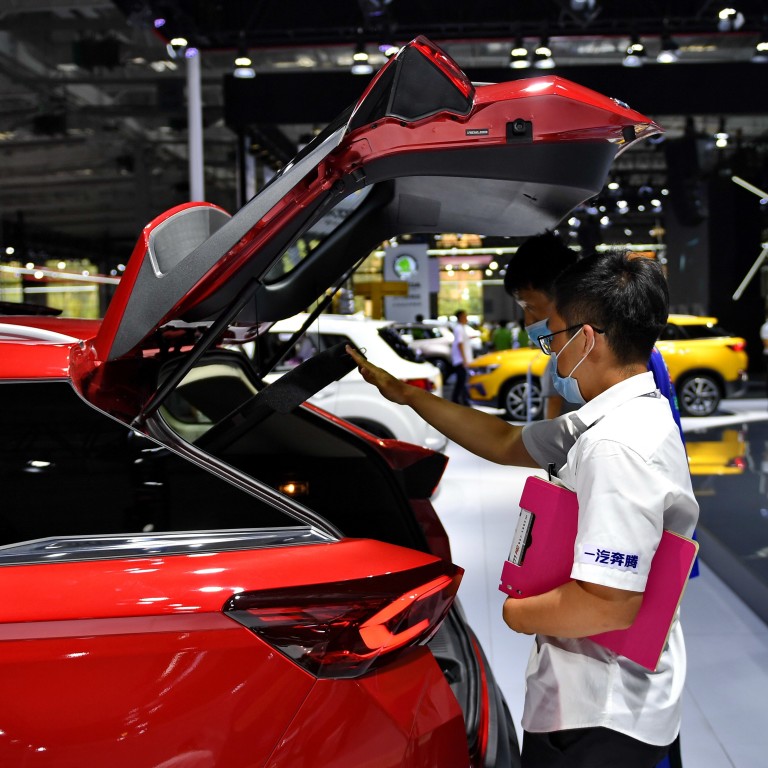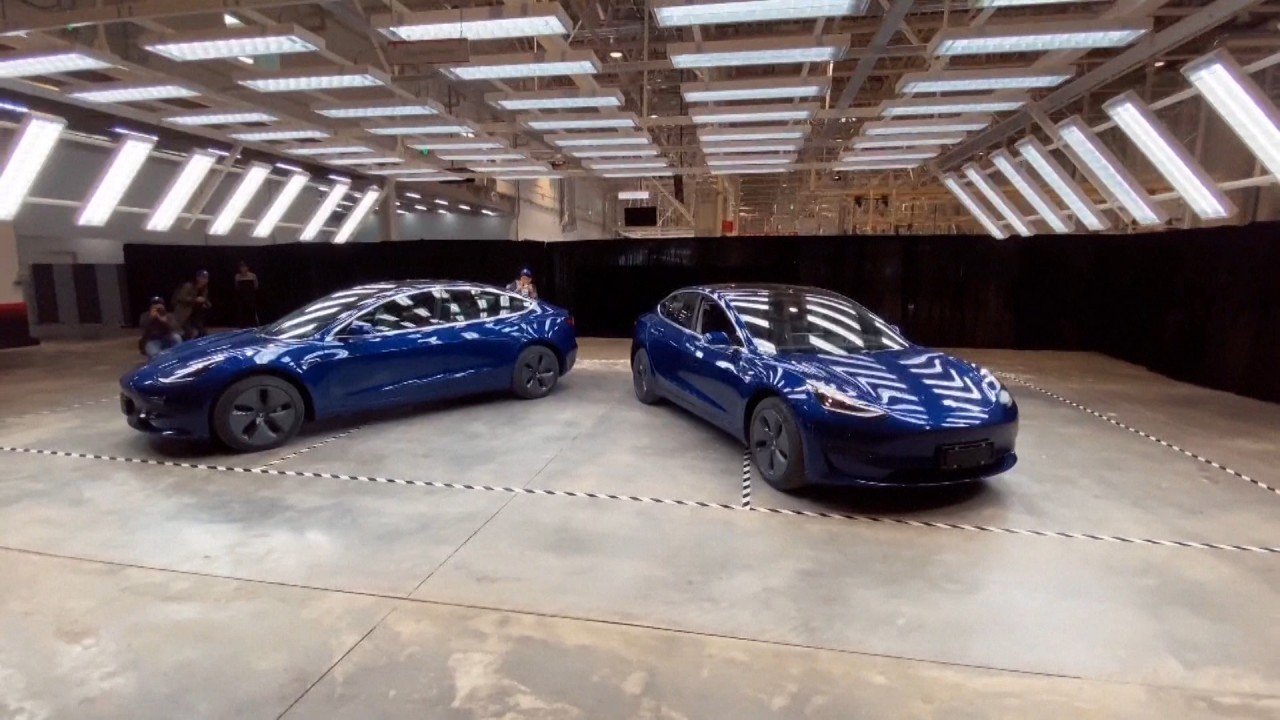
China’s September passenger car sales rise for third straight month, as consumers put Covid-19 firmly in their rear-view mirrors
- Deliveries of passenger cars rose 7.4 per cent in September to 1.94 million units, the China Passenger Car Association (CPCA) says
- Tesla leads as new energy vehicle firms record strong recovery amid surging orders
China’s passenger car sales grew for a third straight month in September, and industry insiders said they foresaw a sustained increase in sales during the remainder of the year after the country successfully contained its Covid-19 outbreak.
Deliveries of passenger cars, which include sedans, sport-utility vehicles, minivans and multipurpose vehicles, rose 7.4 per cent year on year to 1.94 million units last month, according to the China Passenger Car Association. Deliveries of passenger vehicles to dealers rose 8 per cent to 2.088 million units, according to a separate set of data by the China Association of Automobile Manufacturers (CAAM), a carmaker’s guild.
“Pent-up demand is being released,” Tian Maowei, a sales manager at Yiyou Auto Service in Shanghai, said. “Those who delayed their car purchases in the first half of this year are coming back.”
The sector took a beating from the pandemic – production and sales nearly halted in February this year because of lockdown measures introduced to fight Covid-19. The market saw its first ray of hope in the second half, after Beijing successfully contained the outbreak and commercial activities returned to normal.
China’s EV start-ups accelerate plans to grab market share, but mainland buyers can’t look beyond Tesla
Industry insiders said they expected sales to remain buoyant in the fourth quarter as well, amid increasing demand from drivers.
SCMP Infographics: Global carmakers and their venture partners in China
Deliveries of new-energy vehicles, as electric cars are called in China, jumped 67.7 per cent in September from a year ago, according to CAAM’s data, as more companies like Tesla and Xpeng piled into the industry with increased production capacity. Deliveries of total vehicles, including trucks and buses, rose 13 per cent to 2.57 million units, the data showed.
This month, it cut the starting price of Model 3s by 8 per cent to 249,900 yuan (US$37,017) to enhance its competitiveness in a market where 500 Chinese companies are making new energy vehicles in response to Beijing ambitious “Made in China 2025” initiative.
China is currently the only bright spot in the global automotive market, as the coronavirus has disrupted sales and production in Europe and the United States. In September, its car exports rose 32.8 per cent to 62,000 units.

01:20
Tesla starts delivery of made-in-China cars
China’s carmakers are, however, set to report a decline in sales for a third straight year despite the recent rebound in sales, because passenger car sales in the January to September period declined 12.5 per cent to 13.1 million units.

